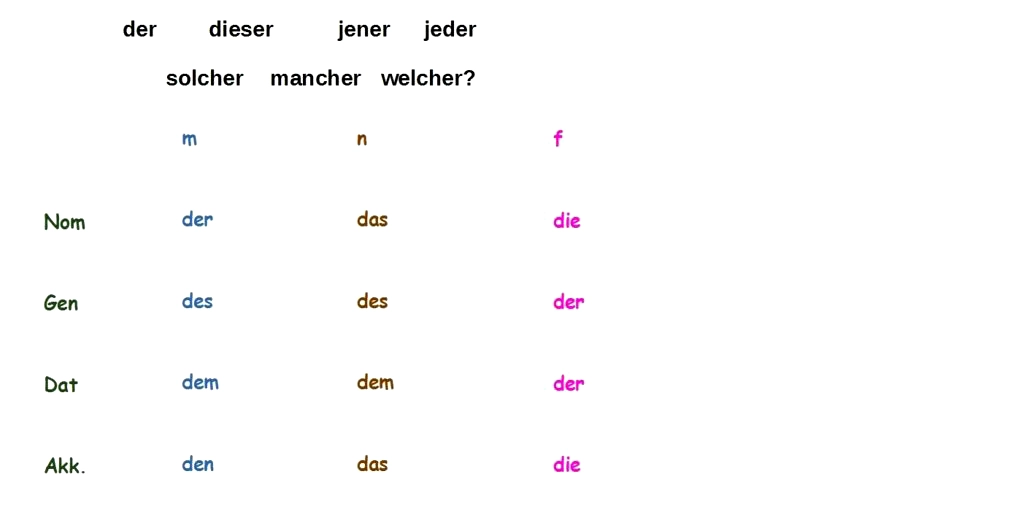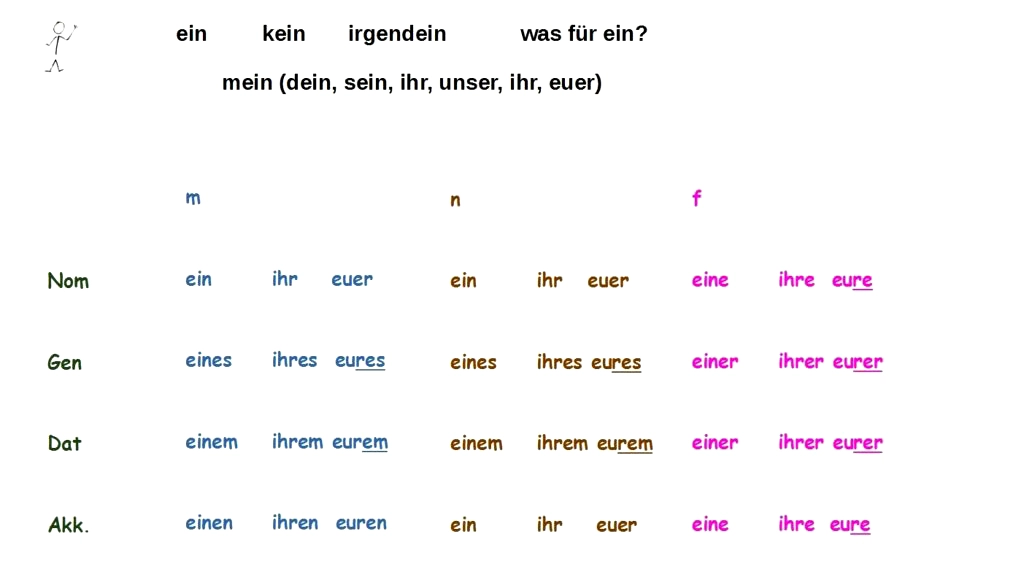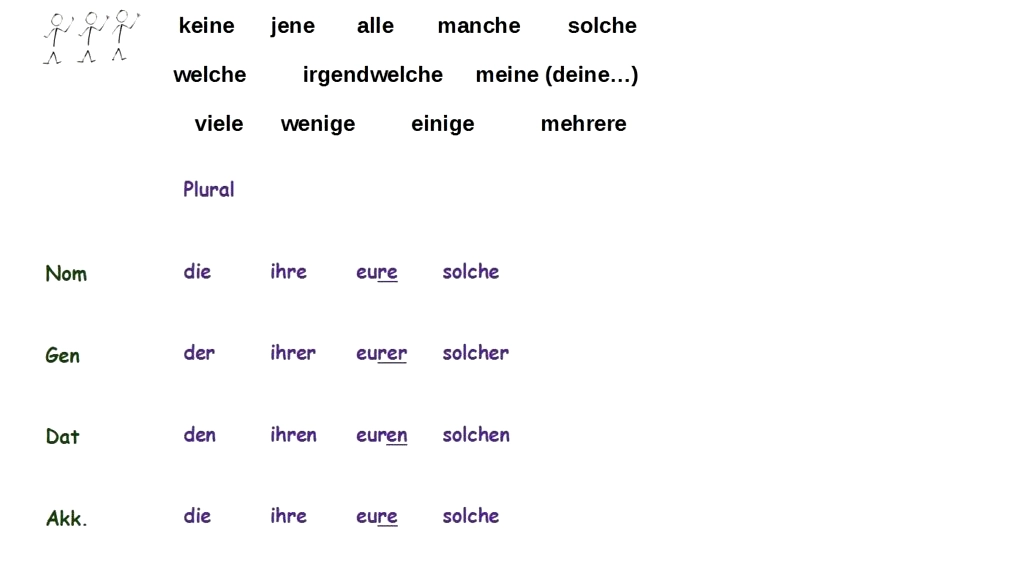Last Updated on October 9, 2023
Nouns are used with articles in German: definite (der, die, das) or indefinite (ein, eine, ein) in the certain form. Articles are declined by gender, grammatical number (definite only), and case.
Basic German with tables. 3. Local prepositions
Basic German grammar tables 1
Basic German. 4. Time and prepositions of time in German
German synonyms. öffnen – offen – aufmachen
Words excavations. Weihnachen
Deutschtest für Zuwanderer. Dialogues
Articles in German
Each noun in German has gender: masculine (Maskulinum, in dictionaries denoted by the letter m or the last letter of the article der -r), feminine (Femininum, f or -e), neuter (Neutrum, n or -s).
The indefinite article is needed, if:
- if they talk about an unknown subject
- if the subject is not defined (“some”, no matter what)
- if they give the definition of an object (Dolphin is an animal: Der Delphin ist ein Tier)
The indefinite article has no plural. In this case, nouns are used without an article.
One tip: if you have a noun with an adjective, it will most likely be the indefinite article (eine rote Jacke)
The definite article is needed, when:
- it is a known subject
- the subject is defined (“this one”) from the context or situation
- it comes to well-known and singular things (sun, Earth, Baltic Sea)
- generalizing, all objects of this kind (Dolphin is an animal that lives in the sea. Der Delphin ist ein Tier …)
The Zero article is used:
- as the plural of the indefinite article
- when it comes to materials (food, material, substance)
- when it comes to abstract concepts (good, evil, fear …)
- with personal names
- with the names of states and cities, if they are used in the singular and have a neuter gender
- with nationalities, professions, religious affiliation
- in proverbs,
- listing a number of objects (Weltreise mit Fahrrad, Schiff und Eisenbahn)
- in headlines
The negative article kein is used:
- when they want to say that something is not there or that they do not like something (Ich mag keine Schokolade. Ich habe keine Zeit. Es gibt keinen Kindergarten)
Declination of the definite article in the singular

Pronouns change in the same way:
dieser (this),
jener (that),
jeder (every, any),
solcher (such)
mancher (some),
welcher? (which one?)
Declination indefinite article

Pronouns change in the same way:
kein (no, not any)
mein (and other possessive – dein, sein, ihr, unser, ihr , notice the dropdown letter e in the forms euer – eurem…),
irgendein (anyone)
was für ein? (what a?)
Declination in the plural

Pronouns change in the same way:
keine
jene
alle (all)
manche
solche
welche
irgendwelche (plural irgendein)
meine, deine, ihre, eure, seine (possessive)
viele (many)
wenige (few)
einige (some)
mehrere (several)
Sentences for training translation in Anki:
All topics with grammar exercises – #german grammar
All about Anki – #Anki
Do you enjoy the site without cookies and maybe without ads? This means that I work for you at my own expense.
Perhaps you would like to support my work here.
Or Cookie settings change: round sign bottom left
